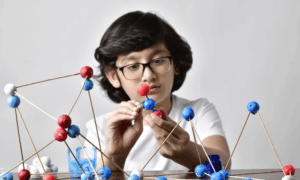Project design is an essential skill for both school students and educators. Well-designed projects not only enhance learning but also encourage creativity, critical thinking, and collaboration.
Schools in Dehradun, known for their academic excellence, emphasize the importance of effective project design in their curriculum to help students gain practical knowledge and problem-solving abilities.
This article explores key project design tips that can benefit students and educators alike, ensuring projects are meaningful, organized, and impactful.
Table of Contents
ToggleUnderstanding Project Design

What is Project Design?
Project design refers to the process of planning and organizing a project to meet specific learning objectives.
It involves deciding on the project’s goals, scope, methodology, and deliverables.
Effective project design ensures that students remain focused and motivated, while educators can guide them systematically.
Importance in Education
Projects make learning active and engaging. A well-structured project helps students apply theoretical concepts in practical scenarios, develop research skills, and learn time management. For educators, it provides a clear framework to assess student progress and outcomes.
Key Tips for Effective Project Design

Define Clear Objectives
The foundation of any project design is setting clear, achievable objectives. Both students and educators should start by asking, “What do we want to learn or achieve?” Objectives guide the entire project and keep the team focused on the end goal.
Choose Relevant and Interesting Topics
Selecting topics relevant to students’ interests or current issues enhances engagement. Educators can suggest themes that align with the curriculum while allowing students to explore their curiosity. This balance makes the project more enjoyable and meaningful.
Plan and Organize
Proper planning is crucial. Create a timeline with specific milestones and deadlines. Breaking the project into smaller tasks prevents last-minute rush and ensures steady progress. Tools like calendars, checklists, or project management apps can help manage tasks effectively.
Designing the Research Process

Conduct Thorough Research
Research is at the heart of any project. Encourage students to gather information from reliable sources such as books, journals, and reputable websites. Schools in Dehradun often promote library visits and digital literacy to support quality research.
Organize Data Systematically
Once data is collected, organizing it logically is important. Use charts, tables, or mind maps to categorize information. This clarity simplifies analysis and helps in drawing accurate conclusions.
Collaboration and Communication

Encourage Teamwork
Many projects require group work. Effective project design includes defining roles and responsibilities within the team. Collaboration builds interpersonal skills and allows students to learn from each other’s strengths.
Maintain Open Communication
Regular communication between students and educators keeps everyone on track. Feedback sessions help identify challenges early and improve project quality. Schools that foster open communication create a supportive learning environment.
Presentation and Evaluation

Focus on Presentation Skills
A project is incomplete without a clear presentation. Teach students to prepare well-structured reports, posters, or slideshows. Practicing public speaking boosts confidence and helps convey their ideas effectively.
Develop Evaluation Criteria
Setting evaluation criteria beforehand helps in fair assessment. Criteria may include creativity, research depth, teamwork, and adherence to guidelines. Clear rubrics guide students and make grading transparent.
Overcoming Common Challenges

Time Management Issues
Poor time management is a frequent problem. Emphasize the importance of starting early and sticking to the schedule. Regular check-ins can keep procrastination at bay.
Handling Resource Limitations
Limited access to materials or information can hinder projects. Encourage creativity in using available resources and suggest alternative methods like interviews or surveys to gather data.
Role of Educators

Guide, Don’t Dictate
Educators should act as facilitators, guiding students rather than controlling every step. This approach fosters independence and critical thinking.
Provide Constructive Feedback
Timely and specific feedback helps students improve continuously. Celebrate successes and offer suggestions to overcome difficulties.
Benefits of Effective Project Design

Enhances Learning Experience
Students engage deeply with subjects, making learning more enjoyable and memorable.
Builds Essential Life Skills
Project design nurtures skills like planning, communication, research, and teamwork, preparing students for future challenges.
Encourages Creativity and Innovation
Students learn to think outside the box and develop unique solutions.
Conclusion
Effective project design is vital for maximizing educational benefits for students and educators. By setting clear objectives, planning thoroughly, encouraging collaboration, and focusing on presentation and evaluation, projects become powerful tools for learning and growth.
Schools in Dehradun exemplify this approach, equipping students with practical skills that extend beyond the classroom. Embracing these tips can transform projects from routine assignments into enriching learning experiences.










